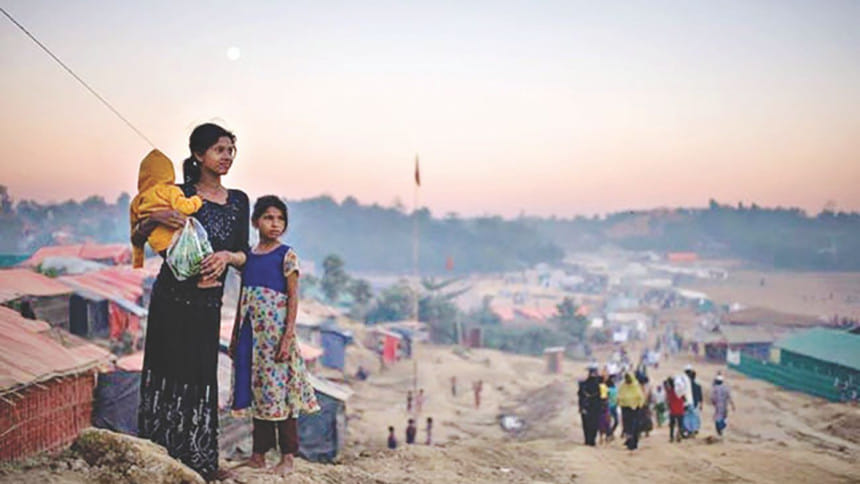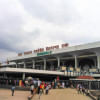How refugees, migrants and climate change are related

The words refugees, migrants and climate change are increasingly becoming connected to each other, but sometimes causing more noise than shedding light! The three terms have very distinct origins and global fora for discourse which were quite different and siloed in the past.
However over the last year all of them have recognised the need to connect with each other. I will try to share some basic concepts and avenues to further connect the three discourses and their stakeholders.
Let us start with the word "refugees" which has a very specific definition that derives from the Geneva Conventions and has a specific UN agency called the United Nations High Commission for Refugees (UNHCR) assigned to deal with it. This term is generally used to refer to people who are forced (usually because of conflict) to flee their country and go to another country where they can claim political asylum and then come under the jurisdiction of the UNHCR.
An associated aspect of this category are people who have to leave their homes and place of residence but remain in their own country. Such people are referred to as "Internally Displaced Persons" or IDPs. There is an Internal Displacement Monitoring Centre (IDMC) based in Geneva which tries to gather data and information on IDPs, but they remain the jurisdiction of national governments only.
The word "migrants" has a much more complicated definition as it includes economic, political as well as environmental causes for people to leave their homes and move away, either staying in their own country or crossing into another country. This includes both "push factors" such as environmental degradation as well as "pull factors" such as jobs in host countries.
There is an international agency called the International Organisation for Migration (IOM) based in Geneva which is now a UN agency as well as a global forum called the Global Compact in Migration (GCM) which includes over 160 countries. The IOM deals with international migrants in distress and helps look after them while trying to return them to their own country of origin.
The third is "climate change" which is a "push factor" under environmental causes of people having to leave their homes due to the fact that human induced climate change makes their ability to remain untenable. There is some evidence of this already happening (although it remains difficult to clearly attribute current displacement due to human induced climate change). However there is no confusion about projecting into the future that many tens of millions of people living in some of the most climate vulnerable places will be forcibly displaced because of the adverse impacts of human induced climate change.
The arena for climate change is the United Nations Framework Convention on Climate Change (UNFCCC) which meets each year at its annual Conference of Parties (COP) where this issue of potential future forced displacement comes under the issue of Loss and Damage as it refers to the loss of livelihood of millions of people over the coming decades.
At the last COP24 held in Katowice, Poland last year this issue was addressed in the acceptance of the Task Force Report on Displacement, which finally agreed to address climate change caused forced displacement going forward.
There is also a fourth arena of global discourse which was started a few years ago by a handful of countries including Norway, Germany, France, Bangladesh and the Philippines. This has become known as the Global Platform on Disaster Displacement (PDD) and holds a major international conference each year organised by the Chair of the PDD. This year Bangladesh is the chair of the platform and recently held the international conference in Dhaka with high level representatives from the UNHCR, IOM and UNFCCC as well as civil society to try to bring these different stakeholders together to focus on potential climate change as a factor in causing more refugees as well as migrants in future.
In the last one year there have been several important events and decisions in the three global arenas mentioned above. The first was the Global Compact on Refugees agreed at the UN General Assembly in New York last September. In it, human induced climate change was flagged as an important issue that should be addressed going forward. The second major event took place in December last year with the Global Compact on Migration agreed by over 160 countries in Marrakech, Morocco where climate change induced migration was also flagged as an important issue to address. This took place at the same time as COP24 in Katowice where the Task Force on Displacement was adopted by the UNFCCC.
So at the global level there has been a recent set of decisions in the different fora dealing with refugees, migrants and climate change to bring the three issues together and plan better so that we can avoid potential future crisis.
At the national level for Bangladesh, all three discourses are relevant going forward. Just to give an example, the nearly one million Rohingyas forcibly displaced from Myanmar are not climate change refugees or climate migrants, but they will certainly become very vulnerable to the adverse impacts of climate change. So far both UNHCR and IOM have been engaged but not the UNFCCC. It is thus time to bring the UNFCCC into the picture.
Another aspect of potential future climate change induced displacement, may occur mainly from low lying coastal districts where we can expect tens of millions of climate change induced dislodgment over the next two decades. These climate change induced migrants of the future will be primarily IDPs, hence the responsibility of Bangladesh to plan for their movement with dignity to cities and towns other than Dhaka increases. This can be done by promoting the notion of developing climate resilient migrant friendly towns around the country to avoid them from ending up in Dhaka.
Bangladesh has an opportunity to lead the global discourse as well as actions that link the issues of refugees, migrants and climate change. The first step is to be clear about what we are talking about when using these different terms that are related.
Saleemul Huq is the Director, International Centre for Climate Change and Development at the Independent University, Bangladesh.
Email: [email protected]









Comments